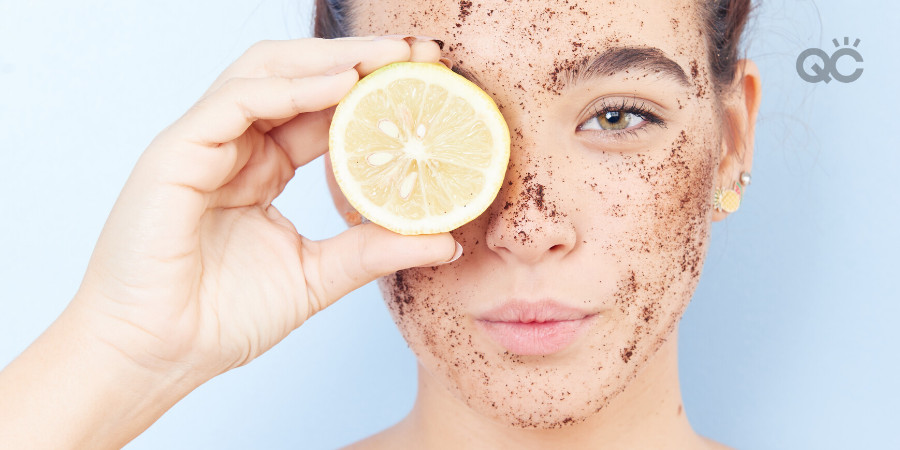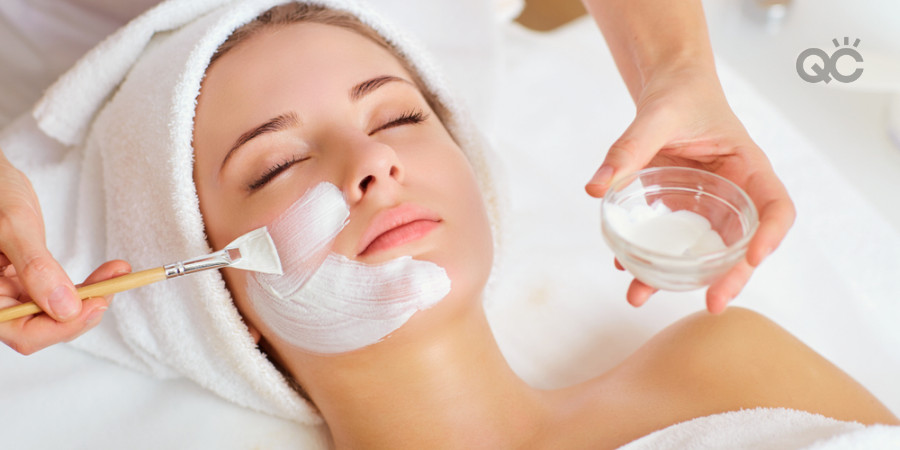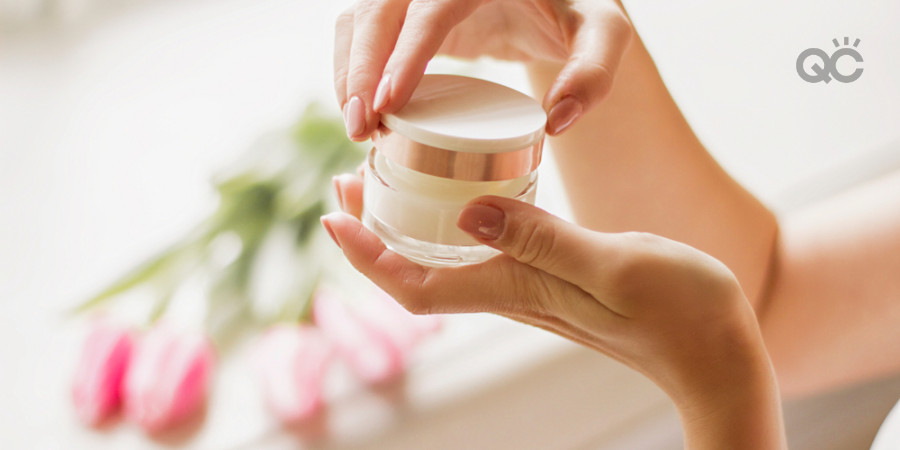Devyn Gregorio is a QC Makeup Academy Student Ambassador. You can find her on her YouTube Channel, Gregorio Girls Makeup, where she makes beauty videos with her sister. Today, Devyn shares her experiences starting her Skincare Course with QC!
Let’s Recap!
Devyn’s just started doing her Skincare course this month. She received her physical course materials in the mail containing a set of lesson texts as well as a Course Guide. These same texts are also found online in the Online Student Center.
The Course Guide breaks down the entire course for you, containing checklists for each unit. As she completes the readings and assignments for each unit, she’ll be checking them off to track her progress. Each unit has one to two corresponding course books for a total of seven physical course texts (the Skin Type Handbook is an online-only text!). Here are the five units in the Skincare course:
- Introduction to Skincare
- Skincare Product, Tools, and Treatments
- Working with Skin Conditions
- Anti-aging Skincare
- Natural Skincare
*Please note that the Skincare course does not come with video*

First Impressions of the Skincare Course
Devyn likes the course so far. She mentions that she’s a graduate from the Master Makeup Artistry course, which she describes as being more extensive. However, the structure is still the same. She suggests completing the course, units, and assignments in order to get the most of your time. The simple way the course breaks down complements the way she likes to learn.
Devyn’s Study Tips
This month, she’s been able to dive into the first couple of readings and assignments in Unit A. The two books for this unit are Introduction to Skincare and Skin Anatomy and Skin Types.
Here’s the study strategy that works best for her. To start, she gives the text a thorough read, making sure to highlight any important points. After the first read, she’ll go back and take notes in her notebook to absorb the information. If you’re a detail-oriented person like her, give her method a shot!
Unit A: Introduction to Skincare
The first unit takes a thorough look at the history of skincare. Then, it takes you through a range of popular skincare career paths as well as different skincare regimens and practices around the world. The unit’s meant to help you understand what skincare regimens are, where they came from, why skincare is important, and why we still practice it to this day.
Did you know? Ancient Romans created some of the first face masks!
They created them by mixing ingredients such as lupine, barley plants, placenta, and animal urine… The Romans used these strange ingredients to remedy skincare concerns such as acne and wrinkles. Even back then, they wanted to target the same skincare concerns we see today!

Breaking down skincare routines around the world
Devyn lives in the United States. The course text highlighted the American ideal of having a bronzy, sun-kissed glow year-round. So bronzers and self-tanning products are popular in North America.
Meanwhile, in places like Korea, their extensive skincare routines typically range in 10-12 steps, and bronzing products are rarely seen. Because Koreans love their skincare, they don’t skimp on their products—it’s the norm. Whereas in North America, Devyn admits that even at 4-steps to her routine, she tries to cut costs where she can!
Career Paths in Skincare
Regarding skincare career paths, Devyn wanted to address a common misconception about what skincare consultants can do. An obvious career path for those who graduate from the program can work for a skincare brand at a beauty retailer. However, if you want to become a dermatologist or esthetician, you’ll need further schooling. This skincare course won’t replace the extensive schooling necessary to go down those scientific and technical fields.
For Devyn, she finds the value of the Skincare course in how it can support the role of a makeup artist.
Makeup artists work with their client’s face and therefore, with their client’s skin. You’d want to know all about the effects of the products they use underneath makeup. More importantly, knowing your client’s skin type can help you see how their skin will react to the products you’re using on them. The last thing you want is to use products that will irritate your client’s skin.

Your clients will look to you to be informed about these topics, even if you’re not doing invasive or chemical procedures on them (like a dermatologist or esthetician would!). She puts it simply: “You’re working on their face, so they’re going to ask you about their face”!
Devyn receives questions all the time from her clients and her YouTube audience because she’s a makeup artist. To answer them as best she can, she believes having a strong background in skincare will make her a stronger makeup artist. Skincare will give her a better perspective of how everything works together and boost her skills.
![Starting My Online Skincare Course: First Impressions [Video]](https://www.qcmakeupacademy.com/wp-content/uploads/2019/06/Header-Image-with-Overlay-Template-86.jpg)
Skin care is very important. It is very good that you have this course too.
I love skin care classes at QC make up academy because it helps you to become better at taking care of your skin and Uzbekistan good that you also taking this class to become better at your knowledge in skin care
I’m excited to learn all this 🙂
Glad I signed up for the skincare course. I’m excited to be learning about these issues and techniques!